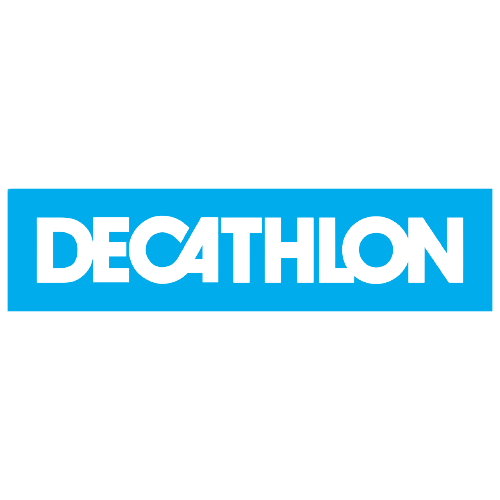In 1976, seven sports fans met in a parking lot in France with a mission to make their passion accessible to all. Decathlon was born and is known today as the world’s largest sporting goods retail brand. Its product innovations range from the two-second pop-up tent to a snorkeling mask that allows you to breathe through your nose. But products aren’t the only way Decathlon is changing the industry: The company is embracing open source, leveraging the global engineering community, and reimagining how its customers buy, experience, and interact with sports gear.
Decathlon has nearly 100,000 employees, many of whom work at its 1,600 stores around the world. But with digital transformation drastically changing the retail game, Decathlon recognized the need to rethink its strategies and bring every step of the shopper’s journey to their devices. To help make this shift a reality, its 1,500-member IT team chose GitHub Enterprise.
Among Decathlon’s tech pioneers is Julien Lind, an engineering manager working on mobile and web solutions for retail stores in 59 countries. His team uses software to manage inventory, point of sale (POS), item pricing, and more. To keep up their momentum, Julien explained, “We need to continuously transform IT to be more open—and put technology first. The world is moving fast, so we need to as well.”

Initially, Decathlon hosted GitLab in their own data center. Remote work required a VPN, which made it challenging to maintain workflow visibility and avoid redundancies. The team also found it difficult to leverage open source when their code was spread over 20 different repository tools. “We needed to transition to cloud to see what everyone was doing,” said Alexandre Faria, a software engineer in charge of developer tools, including the GitHub/Decathlon open source community.
Alexandre had some success consolidating all Decathlon users on a single GitLab repository, but after a few months, most developers switched to GitHub. When the trend became clear, the team moved forward with GitHub Enterprise for its ubiquity: “Everybody knows GitHub, and most are using it both personally and professionally.” Being part of the open source community was also important. “We chose GitHub not only because it was more affordable but because we’re able to contribute to the greater open source community,” said Alexandre.
The shift from an on-premise to cloud-based and open source tools presented initial security concerns for the team. But Alexandre pushed back. Now code is as safe as ever. His team relies on single sign-on, process, and third-party applications to enhance security—even as code gets more visible across the organization. He explained: “Source code doesn’t belong to a team. It belongs to the company. We should be able to contribute openly, and clearly see the source code we depend on.”

Decathlon also relies on Dependabot, a GitHub feature that automatically checks for out-of-date or insecure libraries, then generates pull requests to update them. “We’re less concerned about vulnerabilities in our code because of Dependabot,” said Alexandre. “It’s helped us find and eliminate weak spots and is a big step forward for our software quality.”
Now, all 1,000 GitHub users at Decathlon can access the 2,600 repositories in their organization. And the culture of innersource allows everyone to benefit from more feedback, collaboration, and reuse of code. “GitHub is a community,” said Alexandre. “We have contributions we weren’t expecting before.”
We chose GitHub not only because it was more affordable but because we’re able to contribute to the greater open source community
It also helps that repositories have been consolidated. “Instead of navigating through 10 or 20 different repository locations, it’s all in one place,” said Julien. When they would have previously worked alone or in silos, they can now automate code reviews and remote programming. “We have improved code quality, documentation, and collaboration between peers, too.”
For one project, Decathlon has made 350 releases since the beginning of 2019—“that means two times or more per day, we’ve got a new release in production,” said Alexandre. “GitHub is definitely part of this success. It has sped up the process.”

Alexandre also noted that the team looks beyond Decathlon to release even faster. Before, when they wanted to develop something, they’d have to start at square one, hiring developers to work in their physical office. “Now, with GitHub, we can collaborate with any developer in the world,” said Alexandre. “It’s better to use open source solutions where we have millions of potential developers. We can contribute, share our knowledge, and offer a benefit to the global community.”
And to bring this extended team to Decathlon’s software, they now open source their own code. To ensure they make informed decisions about what goes public, the team spent six months creating a specialized process. A team of advisors, developers, and lawyers evaluates the source code: If it contains sensitive information or would be redundant in the community, it stays private. “During the process, we’re available for any issues or questions,” said Julien. “We want to ensure the team is only publishing source code that everyone is behind—open source is about discovering what you need but also giving something back.”
On their internal code, the team uses the standard Git flow and leverages both existing GitHub Actions and ones they’ve developed themselves. All of their actions automatically create a release note and push it onto the Wiki page of the repository. “Everything is done automatically. We see an action like an extension of continuous integration,” said Alexandre. One of the more popular features is suggesting modifications. “This way, users can directly apply the changes on GitHub.”

A more open and flexible pipeline has made Decathlon nimbler than ever. While a majority of the engineering team is dedicated to retail (on and offline), supply and logistics, warehouse management, and shipping solutions, a full 15 percent is focused on new technology, wearables, and other innovations—with the intent of shaking things up. They’re facilitating this change by reimagining their organization as a digital first. Traditionally, retail starts with a physical store, so this is “an incredible shift,” according to Fabien Dardé, the Scrum Master building Decathlon’s new POS system. The new strategy is to first establish an impassioned online following, and then set up a warehouse infrastructure and open a physical store that everyone can’t wait to visit.
Once in that physical space, the retail experience is driven by technology and centered around users. There’s a “test and buy” option: Choose a product, then live in it for the next seven days. If you’re happy with it, it’s yours. Your account will be charged seven days later. If it’s not a good fit, simply bring it back. They’re also experimenting with Decathlon Coach, a new app that registers your runs and logs your heart rate. This gives the team an avenue to understand how consumers use their products and make data based suggestions; for example, when a customer logs a certain number of miles, they can get a nudge to buy a new pair of shoes, reducing their risk of injury.
In pioneering this new path to retail success, Decathlon will continue to put their best tech forward. “We need to be visible to developers and known as a tech company that leverages both GitHub and the open source community,” said Alexandre. Not only does this strategy help with recruiting, but it makes Decathlon more effective as a whole. “We are stronger when we work together, instead of just one organization at one company.”
 GitHub Enterprise
GitHub Enterprise



